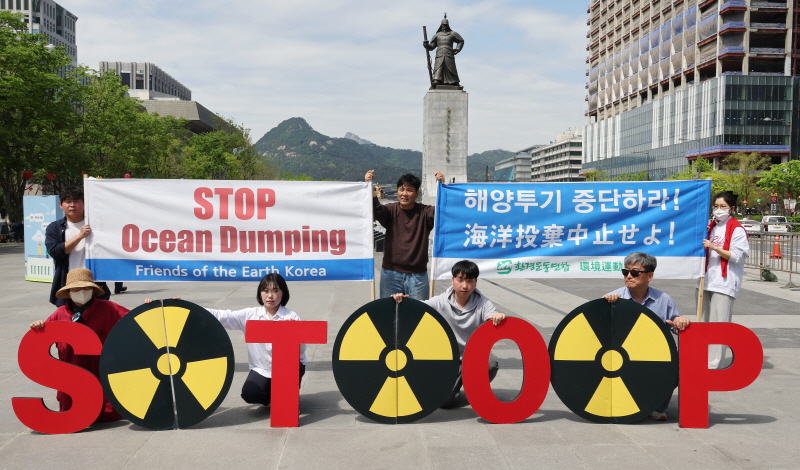Former leaders of South Korea’s Korean Confederation of Trade Unions (KCTU), who were sentenced to prison on espionage charges, were reportedly instructed by North Korea to incite anti-Japan sentiment, particularly regarding the release of treated radioactive water from Japan’s Fukushima Daiichi Nuclear Power Plant, according to a report by Japan’s Yomiuri Shimbun on January 9.
The Yomiuri obtained and analyzed the verdict from the Suwon District Court, which sentenced three former KCTU officials, including former organization director surnamed Seok, to prison terms ranging from 5 to 15 years in November 2024.
The court found them guilty of engaging in espionage under the guise of union activities and for contacting North Korean operatives abroad between 2017 and 2022.

The report claims that a significant number of North Korean directives sent to the accused included instructions to foment anti-Japan sentiment in South Korea. Among 102 documents analyzed, including 89 directives from North Korea and 13 reports sent by the organization to the North, one directive allegedly issued in May 2021 instructed them to capitalize on Japan’s decision to release treated radioactive water into the ocean.
According to Yomiuri, North Korea’s directive stated, “Stir anti-Japan sentiment and push Korea-Japan relations to an irreparable state. Spread information accusing Japan of nuclear terrorism.” The directive also included detailed instructions on organizing protests and boycotts targeting Japanese products.
At the time, relations between South Korea and Japan were strained, with tensions heightened by unresolved issues related to forced labor during Japan’s colonial rule of Korea. The report notes that protests in South Korea against the Fukushima water release intensified around mid-2021, leading up to the Tokyo Summer Olympics in July of that year.
The Yomiuri also reported that North Korean directives focused not only on anti-Japan activities but also on anti-conservative and anti-American efforts, comprising 34 out of the 89 directives analyzed (38%). These included instructions related to South Korean presidential and parliamentary elections, union activities, and espionage operations. One notable report allegedly sent by the group to North Korea in 2020 contained the personal phone numbers of all newly elected South Korean lawmakers.
The newspaper further alleged that North Korea sought to exploit anti-Japan sentiment to deepen divisions within South Korea and escalate Korea-Japan conflicts.
The court ruling also condemned the possession of sensitive data by the spy network, stating that the information posed a clear threat to South Korea’s national security. Among the materials found were images of helicopters, military vehicles, and missile batteries at the U.S. military base in Pyeongtaek, located south of Seoul.
North Korea had issued a directive in January 2019 instructing the network to “prepare for emergencies”, specifically requesting maps of military bases and ports in Pyeongtaek, as well as documents related to South Korea’s power grid system, which could potentially be used to paralyze key government institutions. The court concluded that the spy network had collected this information under North Korea’s orders.
BY YOUNGNAM KIM [kim.youngnam@koreadaily.com]




